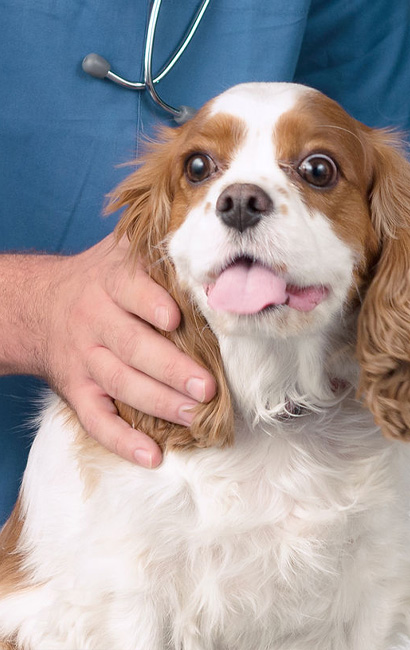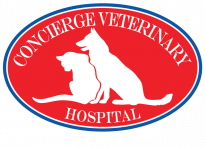Concierge Services
Emergency & Urgent Care
239-777-7387 (PETS)
Welcome to
Veterinary Hospital's Concierge Services
Our Hospital is a full-service, privately-owned veterinary hospital. Open 7 days a week, we specialize in providing exceptional veterinary services to small animals in Southwest Florida.
Our animal hospital in Naples is equipped with state of the art equipment and the latest technology in order to provide the best service and professional care possible.
List of services


House Call Visits
Staying at Home = Less stress for you and your pet!
Does your cat hide like a ninja once that carrier comes out? Have you witnessed the happy doggy-in-the-car eyes turn dark when you enter the vet’s parking lot? Do you want to give the opportunity to your pet to be cared for at home during their last days on earth? Would you like to give your furry family member the gift of passing peacefully in his home environment?
Enter Vet At Your Door!
It is our mission to make things as stress-free for you and your beloved animals by keeping you both at the place you feel most comfortable — your home.
What do I have to do? So what is your part in all of this?
Two main things: First, you need to call our office to make an appointment, Second just be sure you and your pets are around (inside if possible) when we come over.
What happens at the home visit?
At the home visit, our doctor will do an initial exam wherever is comfortable for your animal such as on the couch or on the floor. Depending on the circumstances, a veterinary technician may be there to help with any restraint, diagnostics, or treatments that are needed.
We will guide you through every aspect of what she is doing and why. From ensuring good health with preventative care visits, to helping your animal when they aren’t feeling well, to giving them the dignity they deserve when they leave this earth, Concierge Veterinary Hospital can help make your veterinary experience as stress-free, compassionate, and personal as possible.
How much is it?
Our prices are competitive, you can call local clinics for prices on housecall but most of the services your pet may need will be priced very similar to local vets. There is a “house call” fee that is based on a per mile driving charge. Please call us at 239-777-7387 for a more detailed quote.
What about payment?
Concierge Veterinary Hospital expects payment at the time of service. We will require that client will provide a credit card as form of payment, that credit card info will be erased from our system as soon as the consultation is finished and the payment has been successfully processed. A copy of the invoice with a report of the transaction will be emailed to client for their records. We do not offer payment plans.

At Home Euthanasia
Our pets are beloved members of our family and it can be heartbreaking to see them unwell. Unfortunately there are some illnesses that pets are unable to recover from. In the case of terminal illness and/or debilitating pain or suffering, one of the kindest things that we can do for them is to relieve them of that burden by making the difficult decision to put them to sleep.
How do I know if it is the right time to consider euthanasia?
Your veterinarian is the best person to advise you when it is time to consider euthanizing your pet. However there are also some signs and symptoms that your pet is no longer experiencing good quality of life, and if you notice these then it would be advisable to contact your veterinarian to determine if euthanasia would be the most humane course of action. These signs include:
- Chronic labored breathing, breathlessness and/or coughing
- Chronic pain that cannot be controlled by medication (your veterinarian can advise if this is the case)
- Frequent diarrhea and/or vomiting that leads to dehydration or severe weight loss
- Inability to stand or move around
- Disinterest in food or eating
- Incontinent to the stage where they are frequently soiling themselves
- No interest in communication with family members, treats, games or other previously enjoyed activity
- Zest for life is non-existent
Euthanasia has the small benefit of allowing family members the time to say their final goodbyes to your pet. This is an emotional time and giving them the opportunity for final displays of love and affection with their pet will help ease them into the grieving process. It is especially important to prepare young children as this may be their first experience of bereavement.
What happens during the euthanasia procedure?
Understanding what happens during a euthanasia procedure before the event can be beneficial. Not only will you understand the medical process, but you can be comforted by the knowledge that your pet will be put to sleep in a completely painless and peaceful way. Your veterinarian will explain the procedure to you fully, but if you require further clarification of any elements of the process then we will be happy to provide this.
We offer both in hospital services and our housecall service to come to your home, where you both are most comfortable. Regardless of the location, the service we offer is the same. We will accommodate your need. The decision is yours.
Smaller to mid-sized pets are usually placed on a table, whilst larger animals are most easily put to sleep on the floor. This also removes any discomfort your pet may feel by lifting. Ensure that you take their favorite sleeping blanket to give them added comfort during this time. A veterinary technician will usually hold your pet still to ensure that the procedure is done swiftly and smoothly. If your pet is unlikely to stay still for the procedure then the veterinarian may give him a sedative beforehand.
Most often an IV catheter is placed into a vein the front or rear leg of your pet. This ensures that the vein does not rupture when the euthanizing drug is injected. Your veterinarian will then use this vein to inject your pet with a sedative first to relax and sedate your pet, followed by a second injection which is an overdose of sodium pentobarbital or another anesthetic drug. This causes your pet to fall into unconsciousness, before slowing drifting off silently. For a few minutes after the process you may witness involuntary muscle twitching and breathing from your pet. These are perfectly normal occurrences and no cause for concern. You are then given the option to spend some time with you pet.
AFTERCARE
Ahead of the euthanasia process you will be asked whether you would prefer for your pet to be cremated or prepared for burial. Some client’s request a return of their pets ashes for various reasons. Some like to memorialize their pet on a mantle while others prefer to scatter their pets’ ashes in their favorite walking spot or arrange for them to be made into jewelry or a paperweight. Some do not request their return at all. Again, the decision is personal and there is no right or wrong decision. Whichever option you choose we will help guide you. We work with faithful companions to facilitate this cremation service and you may also chose to call them directly and arrange a service. The cremation service company we use and recommend is Faithful Companions. If you prefer to arrange services directly with them their contact number is 239-591-2300.
An alternative to cremation is home burial. You may wish to bury your pet. If you choose to bury your pet at home you should check any local ordinances for restrictions.
Palliative Care
Concierge Veterinary Hospital is the only hospital in the area offering house call services. We do this for many reason, one being, we can monitor and maintain your pets at home where they deserve to be. With you!! We know you want them home with you during their final stages and that is where they are most comfortable. I am often asked about veterinary hospice. People typically go to a hospice setting when they have been diagnosed with a terminal disease process, with no hope for a cure, to provide them with medical care to keep them as comfortable as possible until death occurs. Many times, you will hear the term “palliative care” which is treating symptoms of a disease (pain, nausea, etc.) but not the disease itself. Palliative care is comfort care, designed to make the patient comfortable and help their family navigate through this journey.
Comfort care, in my opinion, defines hospice care for our pets. The goals are to help pets be pain free, to control nausea, prevent dehydration, and to provide nutrition. Comfort care may also include wound care, assisting with elimination, providing a comfortable, clean resting area, and assisting pets with mobility. Pets are not comfortable when they are struggling to breathe, so adjusting medication or veterinary intervention to ensure pets are breathing well is an important aspect of comfort care.
There are a variety of options for comfort care at home, including oral medications, injectable medications, topical medications, bandaging, fluids given under the skin and so forth. Your veterinarian can prescribe these medications for your pet, and there are veterinary technicians and assistants in the Madison area who will come to your home to provide assistance if you are unable to administer medication. There are some measures that require a visit to a veterinary hospital- placing a feeding tube, having intravenous (IV) fluids, antibiotics, and getting supplemental oxygen to name a few.
The big difference between human and veterinary hospice careThe big difference between human and veterinary hospice care is that we can provide a peaceful euthanasia for our pets when all our best efforts are no longer enough to keep our pet comfortable and happy. Every pet will eventually get to the point where comfort care is not enough to control pain, nausea, difficulty breathing, and other debilitating symptoms. I have been honored to assist families with their pet’s final journey, in the comfort and privacy of their own home. My hope is that every pet will pass peacefully at home surrounded by those they love before they are suffering and uncomfortable and unhappy.

